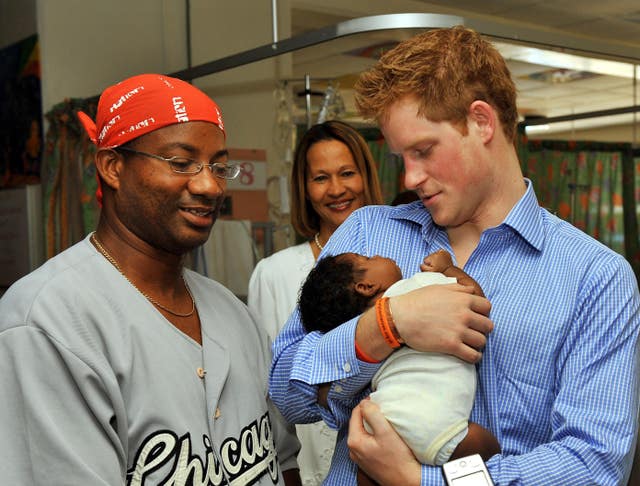Buckingham Palace has said Barbados’s intention to remove the Queen as head of state and become a republic is a “matter for the government and people” of the Commonwealth country.
Governor-General Dame Sandra Mason set out the plan in the “Throne Speech” which traditionally marks the state opening of the Barbados parliament.
Dame Sandra referenced a famous comment by her country’s first prime minister Errol Barrow, saying he had cautioned “against loitering on colonial premises” adding “That warning is as relevant today as it was in 1966.”
The Queen has been Barbados’s head of state since it became independent in 1966 but the issue of becoming a republic has been discussed at national level during the following decades.
Asked to comment on the Commonwealth country’s plans, a Buckingham Palace spokesman said: “This is a matter for the government and people of Barbados.”
Dame Sandra, who is the Queen’s official representative in Barbados, said in her speech delivered on Tuesday: “Since independence, we Barbadians have sought constantly to improve our systems of law and governance so as to ensure they best reflect our characteristics and values as a nation.
“Barbados’s first Prime Minister, The Rt Excellent Errol Walton Barrow, cautioned against loitering on colonial premises. That warning is as relevant today as it was in 1966.”
The speech, written by the Prime Minister Mia Mottley, set out the Barbados government’s agenda for the second session of the 2018-2023 parliament.
The Governor-General added: “Having attained independence over half a century ago, our country can be in no doubt about its capacity for self-governance. The time has come to fully leave our colonial past behind. Barbadians want a Barbadian head of state.
“This is the ultimate statement of confidence in who we are and what we are capable of achieving. Hence, Barbados will take the next logical step toward full sovereignty and become a Republic by the time we celebrate our 55th Anniversary of Independence.”
Downing Street echoed the words of Buckingham Palace saying the development was a “decision for Barbados and the Government there” but that Britain would continue to “enjoy a partnership” with the Caribbean island nation as members of the Commonwealth.
A Number 10 spokesman said: “We obviously have a shared history and remain united with Barbados in terms of history, culture and language, and we will continue to have and enjoy a partnership with them as members of the Commonwealth.”

Barbados will mark the 55th anniversary of its independence on November 30 2021, so the nation has 14 months to enact the major constitutional changes which could usher in an elected presidential-style head of state.
The Cox Commission was established in 1979 to examine the feasibility of introducing a republic but concluded people wanted the present system to remain.
In 1998, a Barbados constitutional review commission recommended republican status, and in 2015 prime minister Freundel Stuart said “we have to move from a monarchical system to a republican form of government in the very near future”.
Barbados is one of the Queen’s 16 realms – countries where she is head of state – and in the Caribbean region other countries include Antigua and Barbuda, Bahamas, Belize, Grenada, Jamaica, Saint Kitts and Nevis, Saint Lucia and St Vincent.
The Commonwealth country would join Trinidad and Tobago, Dominica and Guyana if it proceeds with its plan to become a republic. Jamaica has also flagged such a transition, with Prime Minister Andrew Holness saying it is a priority of his government, but has yet to achieve it.
Barbados took another step away from the UK in 2003 when it replaced the London-based Judicial Committee of the Privy Council with the Caribbean Court of Justice, located in Trinidad and Tobago’s Port of Spain, as its final appeals court.
Downing Street echoed the words of Buckingham Palace saying the development was a “decision for Barbados and the Government there” but that Britain would continue to “enjoy a partnership” with the Caribbean island nation as members of the Commonwealth.
A Number 10 spokesman said:”We obviously have a shared history and remain united with Barbados in terms of history, culture and language, and we will continue to have and enjoy a partnership with them as members of the Commonwealth.”




Comments: Our rules
We want our comments to be a lively and valuable part of our community - a place where readers can debate and engage with the most important local issues. The ability to comment on our stories is a privilege, not a right, however, and that privilege may be withdrawn if it is abused or misused.
Please report any comments that break our rules.
Read the rules here